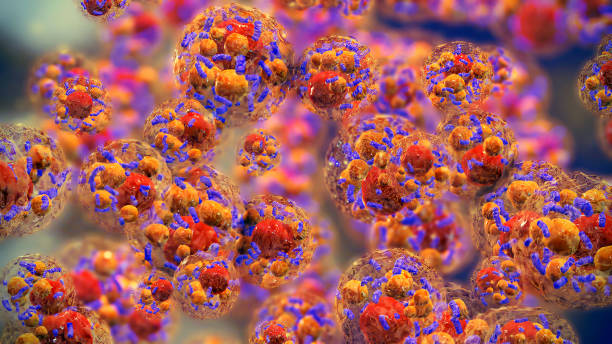Introduction
Losing weight is a goal for millions of people worldwide, but the process is often misunderstood. Many individuals turn to fad diets, extreme workouts, or weight-loss pills in hopes of shedding pounds quickly. However, the truth is that losing weight is a science—one that involves understanding the way our bodies burn fat, how metabolism works, and how lifestyle factors contribute to weight loss.
In this article, we will delve into the science of fat burning and explore the most effective and sustainable methods to lose weight. From understanding how fat storage works to practical tips for incorporating fat-burning strategies into your daily routine, we’ll give you the knowledge and tools to lose weight effectively.
What Is Fat Burning?
Fat burning refers to the process in which the body converts stored fat into energy. This process is crucial for weight loss because, in order to shed pounds, your body needs to tap into its fat stores and burn them for fuel.
How Fat Is Stored in the Body
Fat is stored in adipose tissue throughout the body. When we eat more calories than we burn, the excess energy is stored as fat. The body can store fat in two types of fat cells: white adipose tissue (WAT) and brown adipose tissue (BAT). White fat is the type that contributes to weight gain, while brown fat burns calories to generate heat.
How Fat Burning Occurs
When your body needs energy but doesn’t have enough available from food, it taps into its fat reserves. During fat burning, triglycerides (the storage form of fat) are broken down into fatty acids and glycerol, which are then used by the body for energy. The process of fat burning occurs when you create a calorie deficit, meaning you burn more calories than you consume.
Understanding Metabolism and Fat Loss
Metabolism is the rate at which your body burns calories and converts them into energy. Your metabolism plays a major role in how quickly and efficiently your body burns fat.
Basal Metabolic Rate (BMR)
Your BMR is the number of calories your body needs to perform basic functions like breathing, circulating blood, and maintaining body temperature. A higher BMR means you burn more calories at rest. Factors that influence BMR include age, sex, genetics, and muscle mass.
How to Boost Your Metabolism for Fat Loss
There are several ways to boost your metabolism and enhance fat burning:
- Strength Training – Building muscle increases your BMR because muscle tissue requires more energy to maintain than fat tissue. Incorporating strength training into your routine can help you burn more calories even when you’re not working out.
- High-Intensity Interval Training (HIIT) – HIIT workouts involve short bursts of intense activity followed by rest periods. This type of workout is proven to increase metabolism for hours after exercise, leading to more fat burning.
- Adequate Protein Intake – Eating enough protein increases thermogenesis (the process of generating heat in the body), which in turn boosts fat burning.
- Stay Hydrated – Dehydration can slow down your metabolism. Drinking enough water helps your body function optimally, promoting fat loss.
The Role of Hormones in Fat Burning
Hormones play a significant role in regulating fat storage and fat burning. Certain hormones can either promote fat burning or hinder your weight-loss efforts.
Insulin
Insulin is a hormone that regulates blood sugar levels and plays a key role in fat storage. When insulin levels are high, the body is more likely to store fat. Conversely, when insulin levels are low, fat burning is more efficient. To prevent insulin resistance (a condition where your body becomes less responsive to insulin), it’s essential to focus on a balanced diet with whole foods and avoid excessive sugar intake.
Cortisol
Cortisol is a stress hormone that can contribute to fat storage, particularly around the abdomen. Chronic stress and elevated cortisol levels can make it harder to lose weight. Managing stress through relaxation techniques such as meditation, yoga, and deep breathing can help reduce cortisol and promote fat loss.
Leptin and Ghrelin
Leptin and ghrelin are hormones that regulate hunger and satiety. Leptin signals to your brain that you’re full, while ghrelin stimulates hunger. By eating nutrient-dense foods and getting enough sleep, you can maintain a healthy balance of these hormones, helping you avoid overeating and support fat burning.
Effective Strategies for Fat Loss
Now that we’ve discussed the science behind fat burning, let’s explore practical, evidence-based strategies for losing weight effectively.
Create a Calorie Deficit
To lose weight, you need to burn more calories than you consume. This is called a calorie deficit. You can create a calorie deficit by:
- Reducing your caloric intake – Focus on eating smaller portions or choosing lower-calorie foods. Opt for nutrient-dense, whole foods such as vegetables, fruits, lean proteins, and whole grains.
- Increasing physical activity – Exercise can help you burn more calories. A combination of strength training, cardio, and high-intensity interval training (HIIT) will increase your calorie burn.
Eat a Balanced Diet
A balanced diet is crucial for supporting fat loss. Focus on nutrient-dense foods that provide your body with the vitamins, minerals, and macronutrients it needs to function efficiently. Aim for:
- Lean protein – Protein supports muscle growth and repair, boosts metabolism, and helps control hunger. Include sources like chicken, fish, tofu, and legumes.
- Healthy fats – Healthy fats, such as those found in avocados, nuts, seeds, and olive oil, help regulate hormones and keep you satisfied.
- Fiber-rich carbohydrates – Whole grains, vegetables, and fruits provide fiber, which supports digestion and helps control appetite.
Exercise Regularly
Exercise is essential for effective fat loss. A combination of aerobic exercise (like walking, running, or cycling) and resistance training (like weight lifting or bodyweight exercises) is the most effective way to burn fat. Aim for:
- Cardiovascular exercise – Engage in moderate-intensity cardio like brisk walking or cycling for at least 150 minutes per week.
- Strength training – Incorporate strength training exercises 2-3 times a week to build muscle and increase metabolism.
- HIIT workouts – High-intensity interval training is one of the most efficient ways to burn fat in a short amount of time.
Prioritize Sleep and Stress Management
Sleep and stress management are often overlooked but are critical components of fat loss. Poor sleep and chronic stress can sabotage your weight-loss efforts by disrupting hormone levels and increasing cravings for unhealthy foods.
- Sleep – Aim for 7-9 hours of quality sleep each night to optimize fat burning and hormonal balance.
- Stress reduction – Practice mindfulness, yoga, or other stress-relieving activities to lower cortisol and support fat loss.
Stay Consistent
Consistency is key when it comes to losing weight. While rapid weight loss may seem tempting, sustainable, long-term results are achieved through small, consistent changes to your lifestyle. Focus on making gradual improvements to your eating habits, exercise routine, and sleep schedule.






